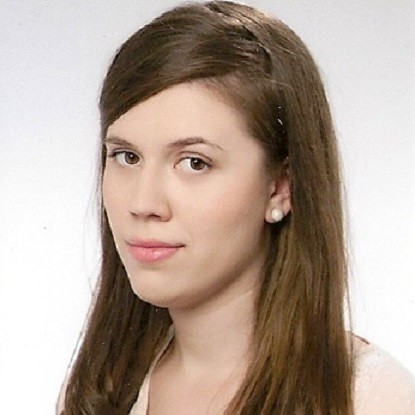Studying Polish – a blessing or a curse?

Editor

related articles
Why do we even study Polish these days?
Agata, teacher: Although it is not the most popular language in the world, it is nevertheless useful if one decides to move to Poland. First of all, because of all the communication. You can do with English just fine in Poland’s major cities, but to go hiking in the beautiful Bieszczady mountains you may need to know some Polish. It is not only about getting by, but more about your comfort, freedom and understanding the surroundings. Ads, banners, slogans, notices, obituaries – they will all remain out of your reach if you do not learn Polish. Besides, the language is part of the culture. By knowing Polish you get closer to understanding Poles.
Piotr, school owner: Poland is part of Europe and furthermore, the globe. There is quite a number of us Poles in the world – around 60 million people, including Polish migrants all over the world. Do you recall the Argentinian film Lost Embrace, whose main character wanted to migrate to Poland, the land of his ancestors, because of the financial crisis? Not to mention Polish characters in Big Lebowski, or more recently Gravity and Prometheus.
Those who study Polish with us are motivated by various factors. They work and study in Poland or use Polish to discover their identity. There are also those who heard about Poland, its history and culture, and felt intrigued by it.
How do foreigners perceive the Polish language?
Sylwia, teacher: Nightmare! or An exception – again?! – we hear those a lot. It is sometimes hard for them to believe that one word can have so many endings, but in the end they learn how to use them.
Agata, teacher: In terms of its melody, they say it makes swishy or crackling noises. To foreigners Poles sound as if they were having a constant argument. Even though some rules seem illogical, eventually they somehow manage to speak Polish in a beautiful way.
What are the most common mistakes made by foreigners learning Polish?
Agata, teacher: The grammar is rather difficult to master; the most common mistakes include not inflecting the words and mixing up different endings. How can you blame them? If you live in a city called Warszawa, in Polish you say: jadę do Warszawy (I’m going to Warsaw), but also: mieszkam w Warszawie (I live in Warsaw). Another major difficulty is the phonetic system and its abundance of the crackling sounds I have mentioned. Polish is definitely one of the most difficult languages to master.
Sylwia, teacher: Yes, the pronunciation is the most common problem, right after grammar. Of course, in most cases we can easily guess what was meant by the foreigner, even if the sound was far from perfect, but sometimes it leads to funny or confusing mix-ups.
What makes foreigners keep going in learning to speak Polish, against all odds?
Magda, teacher: The joy they feel when suddenly faced with a flow of whishing sounds they manage to make out single words or phrases. Wow, I do get it after all! It’s not that bad, maybe it’s worth the effort?, they think.
Wioletta, co-owner, teacher: We also have a lot of fun during classes. You simply need your sense of humour if you want to learn Polish. Students get to know a particular rule, use it with a lot of success in various contexts, and suddenly… there comes an exception. They ask why, but many of them quickly learn that some questions remain unanswered in the Polish language classes…
Agata, teacher: The moment our students see the results of their efforts is a real breakthrough. They come up to us and say that one day, while moving about the city, they started to understand billboards, street names, menus in restaurants… Successful shopping or food ordering is a small victory. They are truly happy when they can show someone the way or tell what time it is. They tell us they love overhearing conversations on the bus or in the workplace and finally knowing what the people are talking about. Such simple joys light a special sparkle in their eyes.
How do students of Polish get by in day-to-day activities?
Agata, teacher: One of the expats was asked by his girlfriend to do some shopping, including salmon. He completely forgot how to say that in Polish, so instead of that, he asked the lady at the fish market for the pink fish – and he did bring home salmon! By the way, salmon is łosoś in Polish.
Damian, student: When I do not know a particular term, I try to use simple phrases instead. I often point to something or even take it from the shelf myself. When it gets really hard, I use Google as my last resort!
Why is it worth taking up classes in a Polish language school?
Agata, teacher: Your learning will be guided by professional teachers with a background in teaching Polish as a foreign language. They know how to explain the rules, what to pay attention to and in what order the rules are to be introduced. Of course it is not enough to be a native speaker to teach Polish with success; while we all use it intuitively, professionals will be able to point out specific rules that will improve your learning process.
Wioletta, co-owner, teacher: A language school stresses practice. For instance, the problematic pronunciation of sounds is the object of intense training from day one. Taking care of that straight from the beginning ensures proper pronunciation throughout the whole learning process.
Damian, student: For me the biggest value lies in group learning. We acquire the language as a team, and along the way we get to support one another and relish in our small successes. It is also a great opportunity to laugh at mistakes – both your own and your co-learners’!
As a teacher, why do you like your job at KLUB DIALOGU, your language school?
Wioletta, co-owner, teacher: It just never gets boring. I have been teaching for seven years now and I have covered the same topics on many lessons, but no two were the same! The fact that students come from various countries, represent multiple cultures and languages, enriches our classes and makes it an unforgettable adventure. I recently counted the number of countries my students came from – there were over 45 of them, which makes up for more than one fourth of all countries in the world!
Agata, teacher: Contact with the people from all over the world. Their cultural, religious, social and linguistic diversity makes our classes extremely interesting. It is a job that makes you give, but you also get so much in return. This makes me get up in the morning. Personally, I also like seeing the final product of my work, the sooner the better. Here it works this way!
Where do your students come from?
Wioletta, co-owner, teacher: We have students from all across the globe. English-speaking students are a big part of our community: England, Ireland, Scotland, the US, New Zealand or Canada. People from France, Germany, Belgium, Switzerland, Sweden, Spain, Portugal or Italy attend our classes as well. We have also had students from Denmark, the Netherlands, Hungary or Greece. Not to mention large groups of students from Slavic countries or Easter Europe: Belarus, Ukraine, Russia, Latvia, Slovenia, Romania. We have also had students from such exotic (to us) countries as: Armenia, Azerbaijan, Brazil, China, Egypt, United Arab Emirates, the Philippines, Ghana, Iran, Israel, Japan, Yemen, Korea, Kongo, Cuba, Libya, Mexico, Nepal, Nigeria, Oman, Somalia, Syria, Tunisia, Turkey, Venezuela.
Thank you for sharing your thoughts on learning and teaching Polish!
 We spoke with the KLUB DIALOGU team, represented by: Piotr Kajczuk (owner), Wioletta Kunicka-Kajczuk (co-owner, teacher), Agata Kliber (teacher), Sylwia Mirosław (teacher), Magda Chabiera (teacher), Damian (student).
We spoke with the KLUB DIALOGU team, represented by: Piotr Kajczuk (owner), Wioletta Kunicka-Kajczuk (co-owner, teacher), Agata Kliber (teacher), Sylwia Mirosław (teacher), Magda Chabiera (teacher), Damian (student).
The KLUB DIALOGU school has been running for over fourteen years, receiving praise from its course participants. Located in the very heart of Warsaw, it can be accessed through the website: www.klubdialogu.pl, e-mail info@klubdialogu.pl or phone number: +48 664 788 004.












